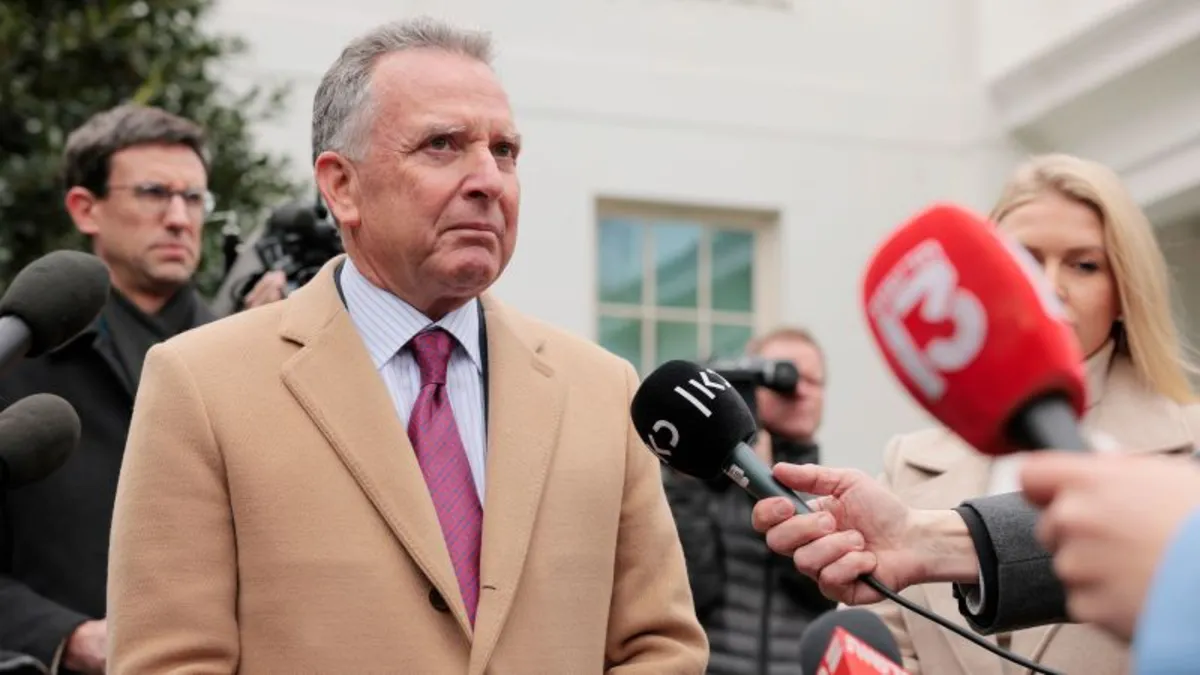
This Saturday, Iran and the United States will embark on significant discussions aimed at establishing a new nuclear deal, a move intended to reduce escalating tensions in the Middle East and avert a potential conflict that could further destabilize the region. The talks, taking place in the Gulf Arab country of Oman, mark a potential milestone as they could represent the first direct engagement between Iranian and American officials in a decade, although Iran has made it clear that the discussions will be indirect, facilitated by mediators.
President Donald Trump has set a two-month deadline for Iran to agree to a deal that would either significantly reduce its nuclear capabilities or completely dismantle its nuclear program. White House Press Secretary Karoline Leavitt emphasized the importance of these talks, stating, “These will be direct talks with the Iranians, and I want to make that very clear.” She reiterated that Trump’s primary objective is to “ensure that Iran can never obtain a nuclear weapon.”
The stakes are incredibly high as the meeting approaches. Trump has indicated that military action could be a possibility should a new nuclear agreement fail to materialize. While he has suggested that Israel would take the lead if military intervention becomes necessary, he stated, “If it requires military, we’re going to have military.”
In response to these developments, Iran has consistently rejected negotiations under pressure. Iranian officials laid out their non-negotiable "red lines" for the upcoming discussions, which include objections to what they term “threatening” language and “excessive demands” concerning Iran’s nuclear and ballistic missile programs. This sentiment was echoed by the semi-state news agency Tasnim, highlighting the Iranian perspective on the negotiations.
While the precise agenda for the talks remains ambiguous, Trump has vowed to negotiate a “stronger” agreement than the 2015 nuclear deal—known as the Joint Comprehensive Plan of Action (JCPOA)—that was orchestrated during the Obama administration. Trump withdrew from this deal in 2018, labeling it a “disastrous” arrangement that funded a regime accused of sponsoring terrorism. The current administration appears intent on establishing a deal that would ensure Iran is unable to develop a nuclear weapon, although specifics on how this new deal would differ from the JCPOA have not been disclosed.
US officials have suggested that they may push for Iran to dismantle its entire nuclear program, including its civilian energy components, a proposal that Iranian representatives have rejected as a non-starter. Experts believe that Iran views its nuclear program as a critical source of leverage, and abandoning it could leave the nation vulnerable. However, the Trump administration has indicated that it is interested in a broader dialogue with Iran, beyond just nuclear issues. A senior official stated that the upcoming meeting would test Iran's willingness to engage in high-level discussions, which could potentially lead to negotiations over Iran's nuclear ambitions, its ballistic missile program, and its involvement with regional proxies.
Despite Trump’s military threats, other American officials have adopted a more diplomatic tone. Middle East envoy Steve Witkoff emphasized the potential for a diplomatic solution, stating in an interview, “This is not a threat.” He aimed to clarify that it is the president who holds the authority to make such decisions. A former US official described the upcoming talks as a preliminary exercise to gauge whether further negotiations could be possible.
The backdrop of these discussions is filled with ongoing threats against Iran. In a recent article, Iranian Foreign Minister Abbas Araghchi warned that military action against Iran would lead to a costly conflict, one that could ensnare the US in another prolonged war in the Middle East. He expressed skepticism that Trump, elected on an anti-war platform, would want to pursue such a path.
The Islamic Republic has decided to engage in negotiations despite facing significant military pressure from Israel, which has targeted Iranian proxies and interests in recent months. Witkoff acknowledged that Israeli actions have left Iran's defenses considerably weakened. Interestingly, Trump’s announcement regarding the talks took Israeli Prime Minister Benjamin Netanyahu by surprise, with reports suggesting that Israel was not in favor of the discussions. Following the announcement, Netanyahu indicated that if the nuclear talks dragged on, military action against Iran might still be on the table.
As the talks approach, it remains to be seen whether they will pave the way for a comprehensive agreement or if they will simply serve as a precursor to further tensions in the region.